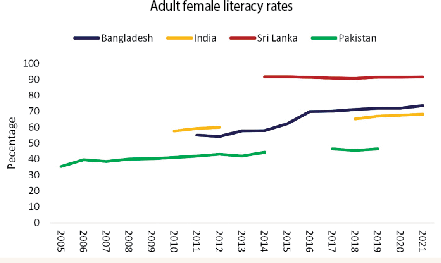THE tripping of the northern 500kV transmission system on December 12 once again demonstrated the fragility and unreliability of the national grid network. On February 24, 2013, the system had tripped and resulted in a countrywide blackout.
Another major power breakdown on June 18, 2009, had plunged most parts of Sindh, including Karachi, into darkness for many hours, after the Dadu-Jamshoro-Hubco 500kv transmission lines had tripped.
And most recently on December 21, almost the entire province of Sindh and parts of Balochistan were without power for around 12 hours after a fault developed in the 500kV Dadu-Guddu transmission line.
The basic bottleneck has been overloading, with the old and weak transmission lines unable to sustain the additional power burden.
The basic bottleneck has been overloading, with the old and weak transmission lines unable to sustain the additional power burden
The electricity transmission and distribution infrastructure is termed as the backbone of the power sector, as it enables a reliable, stable and efficient supply of electricity to consumers.
Power generation and transmission have to be coordinated effectively to ensure optimum usage and development of the transmission system. Thus, an adequate, integrated and well-interconnected transmission network is a vital prerequisite for achieving the energy policy’s goals.
Sadly, this segment of the power sector has remained neglected for a long time. An obsolete, inadequate, underdeveloped and poorly managed transmission system, which has not been upgraded and modernised for decades, has caused increased forced outages in the system multiple times.
While the net power generation capacity increased from 59,545GWh in 2002-03 to 90,359GWh in 2012-13 — a rise of 52pc — the transmission system could only achieve a growth of 39pc during the same time, from 9,592km to 13,340km. Surprisingly, there were 78 forced outages (other than planned outages) in the NTDC’s 500kV system in 2012-13. These were for a cumulative duration of 91,819 minutes, while the maximum duration of a outage was 56,334 minutes.
Similarly, there were 248 forced outages in the 220kV system, for a total duration of 263,021 minutes. These were more than the planned outages of 257,849 minutes, with the maximum duration of a single outage at 26,281 minutes.
According to Nepra’s State of Industry Report 2013, the Guddu (thermal), Uch and Habibullah coastal power plants stopped working during May 23-24, 2013, due to a fault in the transmission system.
The inadequate capacity and lack of timely interconnections with the transmission network also proved to be a major bottleneck when additional power generating capacity was being inducted, resulting in delays in the dispersal of power from many new power projects. A few recent examples are that of Allai Khwar and Duber Khwar hydropower and Nandipur thermal power stations.
Under the government’s Medium-Term Development Framework 2005-2010, a power transmission sector development plan was launched. It was then revised as the Power Transmission Enhanced Investment Programme, which is being implemented at a cost of $3.9bn and to be completed by December 2016. The ADB has contributed $800m to this programme, having recently signed loan and project agreements for the last tranche of $248m.
Four new 500kV grid stations, along with associated transmission lines, were to be commissioned at Rahim Yar Khan, Dera Ghazi Khan, Lahore and Shikarpur during December 2013-June 2014. But they have been delayed due to various reasons, including financial constraints, and their revised timeline is for 2016-17.
In addition, as many as 16 new 220kV grid stations, along with associated transmission lines, were planned. These include Bandala, Rohri and Okara, which were to be commissioned in August 2013 but were delayed. The recently inaugurated 220kV grid station at Toba Tek Singh was scheduled for commissioning in September 2013.
Other ongoing or upcoming projects are at Loralai, Dadu-Khuzdar, Kassowal and GIS Shalamar; they were supposed to be commissioned in December 2013. Ghazi Road, Chishtian, Dera Murad Jamali and Gujrat were to be completed in 2014, and Nowshera, Lalian, Mansehra and Dera Ismail Khan are scheduled for completion in 2015.
Unfortunately, almost all of these projects have been delayed and are now scheduled to begin commercial operations by 2016-18. Projects for dispersal of power from various proposed coal-based and hydropower power stations, and for electricity imports from neighbouring countries, are in different stages of planning and implementation.
The government had announced a transmission policy in 1995 to attract private investment in this sector due to constraints on public funding, but it was unsuccessful. The contract for two projects for 1,450km of transmission lines and associated grid stations — costing $700m —was awarded to a foreign company, which failed to achieve financial closure within schedule.
The present government launched the Transmission Line Policy 2014, which provides investment incentives for constructing transmission line and grid stations of 220kV and above on a BOOT basis.
In response, two Turkish companies, namely STFA and Zorlu Holding, have signed MoUs, but there is no headway. This May, the NTDC signed an MoU with a Chinese company to set up three 600kV transmission lines from the south to the north.
Published in Dawn, Economic & Business, January 6th, 2015
On a mobile phone? Get the Dawn Mobile App: Apple Store | Google Play

































